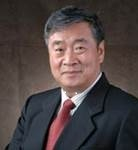
Practical information
Séminaire fermé sur invitation.
Seminar organized by CDC Climat and Ifri Center for Energy with Pr He Jiankun, Vice Chairman of the National Experts Panel on Climate Change.
In the run up to the major milestone of the 21st Conference of the Parties to the United Nations Framework Convention on Climate Change (COP21) in December 2015 in Paris, CDC Climat Research and the Ifri Center for Energy are jointly organising « Climate Breakfast Roundtables » bringing together key stakeholders with the aim of sharing analyses on the climate policies adopted at local, national and regional levels and on the potential outcomes of the Paris Climate Conference.
On Thursday 5th March, CDC Climat Research and Ifri are pleased to welcome Pr. He Jiankun, Director of the Institute of Low Carbon Economy he also serves on various panels which include: the Vice Chairman of the National Experts Panel on Climate Change, the Vice Chairman of the China Society for Sustainable Development, the Vice Chairman of the China Energy Research Society, the Vice President of China Industrial Energy Conservation and Clean Production Association, the President of Beijing Association for Energy, and the Director of Beijing Experts Panel on Climate Change.
He will provide an overview of China’s domestic climate policy and its involvement in the international climate change negotiations. His statement will be followed by a debate with the audience.
|
.
|
Other events

From Ambition to Action: Exploring Technological Partnerships with India
The 16th EU-India Summit, held on January 27th in New Delhi with European leaders António Costa, Ursula von der Leyen, and Prime Minister Narendra Modi, marks a significant milestone in deepening EU-India relations. At the same time, official bilateral visits from EU member states are on the rise, including that of the French President, who visited India in February to participate in the Artificial Intelligence Summit. As India asserts its technological ambitions and seeks to reduce its dependence on China, Europe is stepping up its efforts to diversify its strategic partnerships.

The Enlargement of the European Union: A Strategic Choice? France, the Western Balkans and the EU in an Uncertain Geopolitical Context
Russia’s war against Ukraine has brought the enlargement of the European Union back to the centre of European strategic debates. In this context, the Western Balkans have regained heightened visibility in discussions on the continent’s security, at a time when the international environment is marked by a growing number of destabilising factors.






